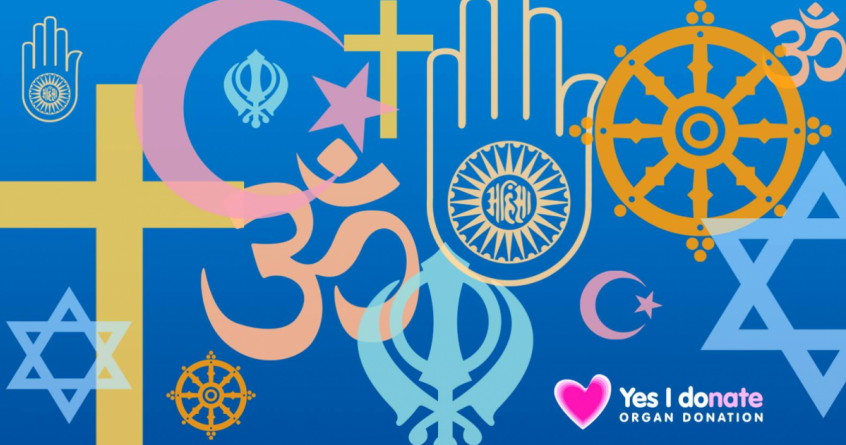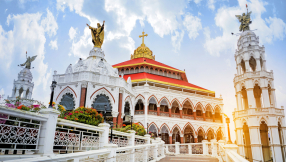
The NHS is hoping that a new beliefs declaration will encourage more people of faith to become organ donors.
A new faith and beliefs declaration has been added to the organ donor register to add clarity around what different religions believe about organ donation.
The update to the register has been made at the behest of the Government as it tries to increase the number of organ donors. The Government is currently considering whether to change the law so that people are automatically registered for organ donation unless they opt out.
Research by NHS Blood and Transplant found that religious beliefs continue to be a significant barrier to organ donation among ethnic minority communities.
In a survey of over 1,000 adults from black and Asian backgrounds in May this year, 27 per cent said they thought organ donation was against their culture or religion.
Last year, only 42 per cent of black and Asian families agreed to donate their relative's organs, far lower than the overall population (66 per cent).
But according to NHS figures, over a third of patients waiting for a kidney transplant are from black, Asian and minority ethnic communities and last year, members of these communities accounted for one in five people who died while on the transplant waiting list.
Despite the low uptake, the NHS said the best chance of a match was typically found in individuals of the same ethnic background.
In August, the Government released the results of a consultation into organ donation among religious communities which found a desire for more recognition of the role faith plays in deciding whether to proceed with donation.
The addition of the faith declaration means that when people sign up to become organ donors, they will now be asked an additional question about whether they want their faith or beliefs to be discussed with their family or another person close to them, such as a faith leader.
It does not ask the individual to specify their faith or beliefs and this information will instead be gathered through conversations between a specialist nurse and their family.
Jackie Doyle-Price, Minister for Inequalities, said the update to the register would give people the confidence that their beliefs will always be considered.
'Organ donation is a priceless gift – but thousands of people are still waiting for a transplant and we must do all we can to remove the barriers that prevent people from signing up as a donor,' she said.
Sally Johnson, interim chief executive for NHS Blood and Transplant, said it was important to continue working with faith leaders, chaplains and pastoral carers to breakdown the 'misconceptions' about the organ donation process within black, Asian and minority ethnic communities.
'Organ donation is supported by all the major religions and belief systems in the UK, but we understand that a person's faith or beliefs can play a role in their decision whether or not to donate their organs,' she said.
'We hope this declaration will provide additional reassurance to those who need it and we will see an increase in numbers of people from a wide variety of faiths and cultural backgrounds joining the NHS Organ Donor Register.'













